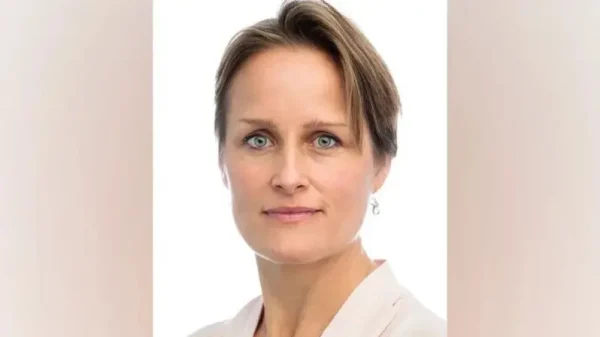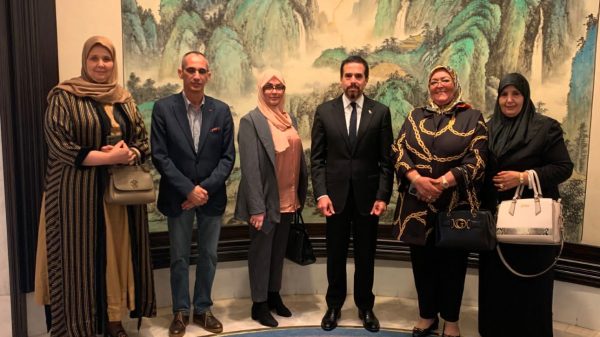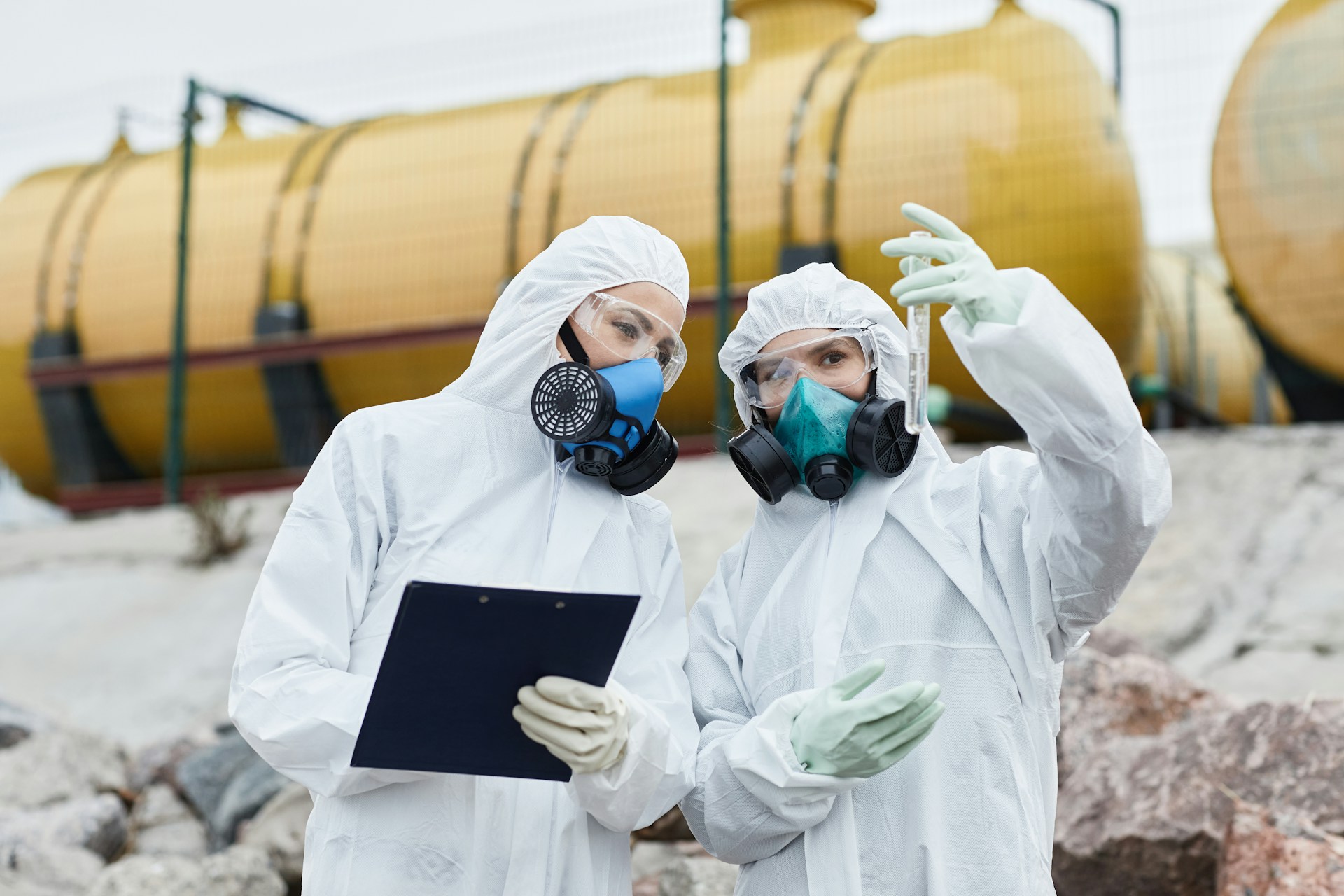The Belgian Prime Minister Alexander De Croo, representing the nation’s Presidency of the EU Council, is hosting an industry summit tomorrow in collaboration with the European Chemical Industry Council (CEFIC) and its Belgian industry member association Essenscia at the port of Antwerp.
This summit, attended by big business’ CEOs and various top politicians including EU Commission President Ursula von der Leyen, aims to discuss the future of the chemical sector and potentially set the strategy for the EU for the next five years in the so-called “Antwerp Declaration for a European Industrial Deal”.
Tatiana Santos, Head of Chemicals at the European Environmental Bureau (EEB), states:
“This event heightens an obvious concern: the prioritisation of polluters’ profits over public health and the environment. Moreover, in an astonishing display of disregard for the welfare of citizens, this event is taking place in one of the most polluted regions in the world, in the house of BASF, an international chemical giant and a major contributor to global pollution.”
Last October 2023, pollution victims from Belgium, Italy and France requested an audience with Ursula von der Leyen [1] to address the devastating health consequences of hazardous PFAS chemicals (per- and polyfluoroalkyl substances). Despite their passionate plea, their voices were ignored.
Laura Ghiotto and Cristina Cola, Mamme no PFAS. Letter to the President of the EU Commission, Ursula von der Leyen [2]
“We breastfed them […] PFAS were hidden in our milk. We were not aware that we were poisoning our kids! Now, in their blood, you can find PFAS up to 30-40-50 times the level expected in the general population.”
As EU leaders set their agenda ahead of elections, this private one-to-one discussion between industry and politicians starkly contrasts with the hurdles faced by citizens and NGOs alike in having their voices heard. Meanwhile, chemical pollution scandals continue to unfold all over Europe [3]. Victims decry the actions of corporate giants like 3M, Dupont, Chemours, or Bayer-Monsanto, who not only conceal the harmful effects of chemicals but are allowed to persist in their use.
Stéphanie Escoffier, a victim of chemical pollution while working as a chemist at ARKEMA in Lyon. Letter to the President of the EU Commission, Ursula von der Leyen [4]
“To what extent can a private company pollute the environment and the drinking water consumed by hundreds of thousands of people? And impact the health of residents? Who is responsible for assessing the risk/benefit balance for society from the production of these toxic chemicals?”
The results of Europe’s largest screening program for toxic chemicals, the HBM4EU [5], reveal alarming levels of exposure to chemicals linked to serious health problems such as cancer, infertility and birth defects. Despite mounting evidence and public outcry, policymakers continue to succumb to industry pressure, delaying the much-needed reform of the EU’s outdated chemicals control law, REACH (the Regulation on the Registration, Evaluation, Authorisation and Restriction of Chemicals), and reneging on promises in its Chemicals Sustainability Strategy for a toxic-free Europe.t
Vicky Can, researcher and campaigner at Corporate Europe Observatory, states:
“Tomorrow, polluters will have a good day at the expense of people and communities across Europe. This cosy lobby event with the Big Toxics industry, held on the doorstep of some of Europe’s worst ‘forever chemicals’ contamination, is appalling. It’s time to hold corporations to account for their role in the creating the toxic pollution crisis, not reward them. Tomorrow NGOs will demand an end this kind of privileged access to decision-makers. It’s time for toxic-free politics.”
For many European citizens, the urgency for change has never been clearer. Many have united to call for a toxics-free Europe, with a petition that has reached almost 100,000 signatures [6] in just a few days. Tomorrow, several NGOs will call on EU leaders to prioritise public health and environmental sustainability over corporate interests [7].
The European Environmental Bureau (EEB) is Europe’s largest network of environmental citizens’ organisations, standing for environmental justice, sustainable development and participatory democracy. Our experts work on climate change, biodiversity, circular economy, air, water, soil, chemical pollution, as well as policies on industry, energy, agriculture, product design and waste prevention. We are also active on overarching issues such as sustainable development, good governance, participatory democracy and the rule of law in Europe and beyond.
1] https://eeb.org/wp-content/uploads/2023/10/20231002-Letter-to-President-Commission.pdf
[2] https://eeb.org/wp-content/uploads/2024/02/Laura-Ghiotto-and-Cristina-Cola-Mamme-no-PFASs.-Letter-to-the-President-of-the-EU-Commission.pdf
[3] Several scandals have unfolded in recent months from the Veneto region of Italy to the “chemical valley” of France, The Netherlands, Belgium, both Flanders and Wallonia, to Sweden, and beyond.
[4] https://eeb.org/wp-content/uploads/2024/02/Stephanie-Escoffier-Letter-to-the-President-of-the-EU-Commission-Ursula-von-der-Leyen.pdf
[5] The European Human Biomonitoring Initiative (HBM4EU), Europe’s largest ever screening programme for toxic chemicals, tested more than 13,000 people from 28 European countries and found that the population is exposed to “alarmingly high” levels of hazardous chemicals, especially of children.
[6] https://action.wemove.eu/sign/2024-01-ban-forever-chemicals-EN
[7] On the eve of this industrial summit, climate and citizens’ movements in Antwerp bring together scientists and trade unions to discuss an alternative vision of a social and ecological port. The debate will focus on issues related to the health of workers and local residents, the scientific state of play on PFAS and the rehabilitation of Zwijndrecht and Linkeroever highly polluted areas.





















